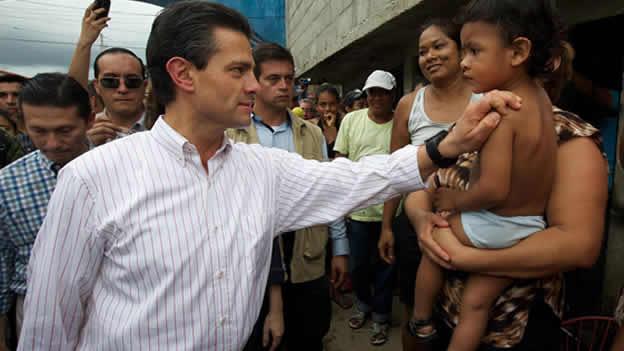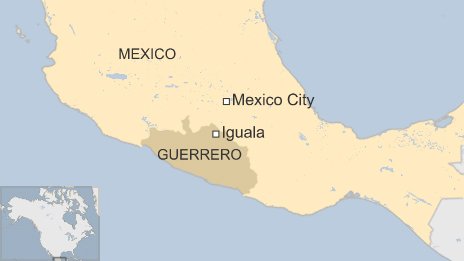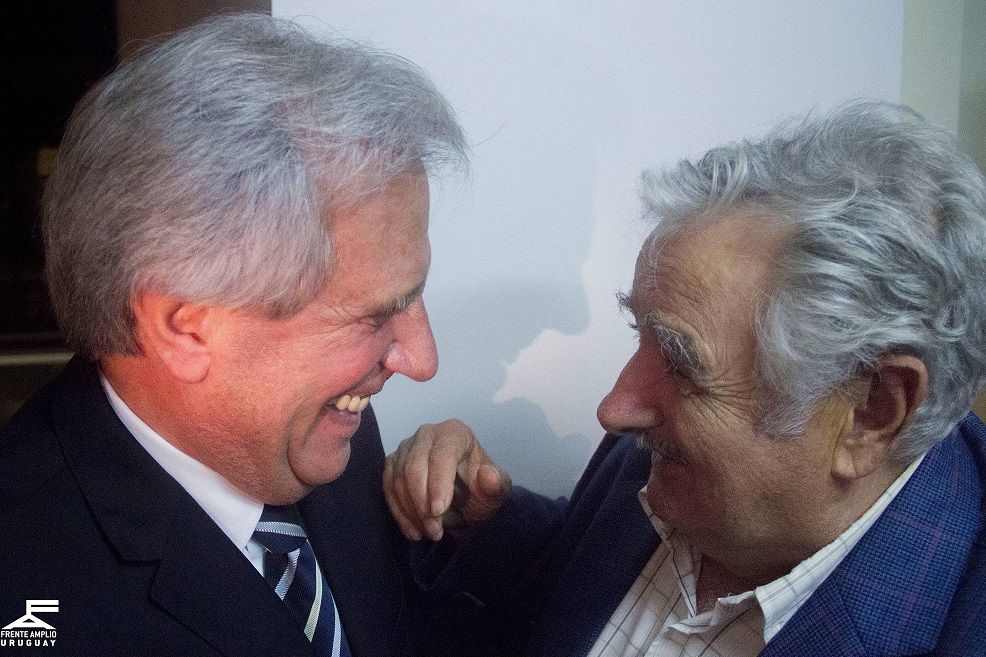Guest post by Christopher Skutnik
 Photo credit to NTX.
Photo credit to NTX.
When he was elected in July 2012 in a relative landslide, Enrique Peña Nieto thought his administration would be defined by good governance and economic, tax and energy reforms.![]()
Above all, everyone thought that Peña Nieto would be eager to demonstrate the new look of the Partido Revolucionario Institucional (PRI, Institutional Revolutionary Party), which controlled Mexico’s presidency between 1929 and 2000, with the rise of a younger generation of technocratic cabinet members, including Luis Videgaray, EPN’s finance minister.
On the second anniversary of his inauguration, however, Peña Nieto (pictured above visiting Guerrero in 2013) faces the risk of losing the narrative of his presidency with four years left in office — following the September killings of 43 university students, reminiscent of the 1968 Tlatelolco massacre that is widely seen as one of the lowest points of the PRI’s 20th century rule.
So what happened in Iguala?
It’s no understatement to say that Mexicans everywhere have been touched by the incredible display of violence and governmental corruption that took place on September 26, when 43 students were abducted and, allegedly, assassinated in the town of Cocula, near Iguala, the third-largest city in Guerrero state.
The office of Mexican attorney general Jesus Murillo Karam has determined that Iguala mayor José Luis Abarca ordered local police to confront the students, since he was worried that they would disrupt an important political event at which his wife, Maria de los Angeles Pineda, was scheduled to speak.
With what appears to the approval of Iguala police chief Felipe Flores Velásquez, local officers apparently ambushed the students, (killing 6 outright), and abducted 43 more. A further 14 students successfully escaped, and were later located safely.
According to officials, Cocula’s police chief, Cesar Nava Gonzalez, ordered police to transfer the 43 captives to a local gang called Guerreros Unidos, to which Nava Gonzalez apparently belonged. The gang members then allegedly transported the students to a landfill, murdered them, burned their bodies, and dumped their remains in a local river.
The sad tale, however, becomes even more ridiculous upon further review. Los Angeles Pineda, the mayor’s wife, is allegedly known as ‘Lady Iguala’ and, along with her two brothers (both of whom were assassinated by rival gangs) was tightly connected to the Guerreros Unidos gang. Circumstantially, it appears that she used her position to leverage a considerable amount of wealth, as well as intervene on behalf of her gang. Continue reading Two years in, Iguala massacre threatens Peña Nieto presidency


